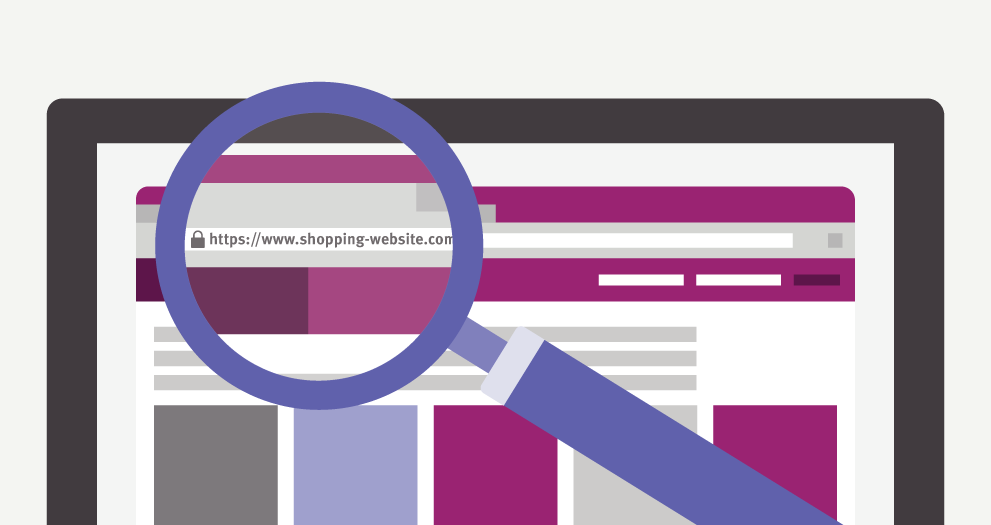Updated October 2025
You could be one click away from getting scammed.
Shopping from home is convenient for us… and for cybercriminals.
Ordering the blender off your sister’s wedding registry? Thinking about a new pair of hiking boots but don’t want to head into a store? Hopping on the web makes it easy to search for items, compare prices, and buy things in just a few clicks.
It also gives scammers multiple ways to get their hands on your personal and financial information.
So, how do you know who you can trust when shopping online? Here are some basic safeguards to practice before you give out your credit card number to online stores:
1. Make sure the website is secure.
The website’s address should start with “https.” The “s” means the connection is secure, and a locked padlock or unbroken key icon in the address bar shows that the site is using encryption to help protect your data.
But keep in mind that little “s” and lock icon aren’t foolproof ways to know a site is secure.
Scammers can fake sites that look real. Instead of clicking on links or relying on a Google search, it’s safer to type the web address directly or use a saved bookmark. Bad actors have started buying Google ads to make their fake sites appear at the top of search results, so even a “secure” site can be dangerous if it’s not the real one.
2. Stick with secure networks and private computers.
It’s tempting to shop when you’re bored or away from home, but don't buy anything using open networks provided by coffee shops, hotels, or airports. It’s also a good way for hackers to grab your personal information.
While password protected public Wi-Fi is better, it still isn’t 100% safe. If you’re using it, stay off websites that use any of your personal information.
3. Find out who you're dealing with.
Have you come across an amazing product you want to buy, but you’ve never heard of the seller before? It’s time to check to see if it’s a legitimate business. Here’s how:
- Go through the online reviews.
- Look at the contact details for a real phone number and address. You can take it a step further and call the business to verify the number.
4. Pay with a credit card or digital wallet.
Using a credit card to buy online helps keep your money safe. A lot of credit card companies offer zero liability protection, which means you're not on the hook for unauthorized transactions in most situations.
Digital wallets, such as Apple Pay and Google Wallet, are also a good option for online shopping. They store your payment and shipping information under multiple layers of security. Digital wallet services don’t send card numbers with your payment.
That liability with a debit card could be unlimited, depending on the policies of your financial institution. If someone hacks your debit card, they could drain your checking account.
👍 Pro-tip: Avoid saving your card details on websites. If your login is compromised or there's a data breach to that website, your card can be easily accessed and used. It's safer to enter your payment info by hand each time.
Scammers are tricky. If something seems too good to be true, it probably is. You don’t have to go through with buying what’s in your cart if you can’t shake a suspicious feeling about your order.





